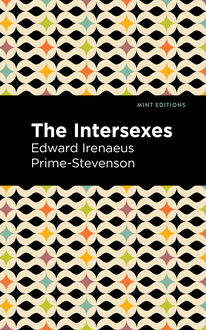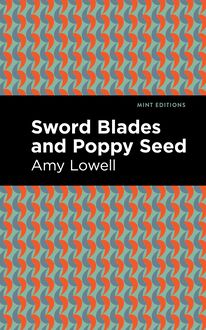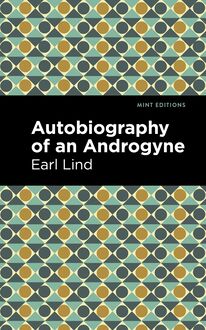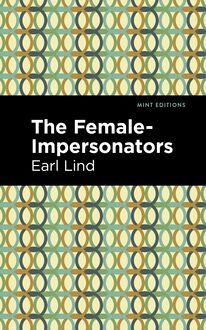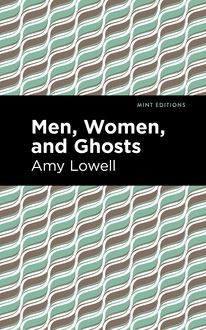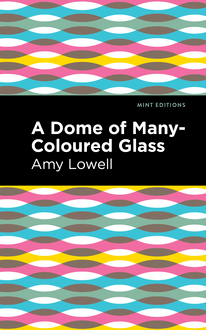-
 Univers
Univers
-
 Ebooks
Ebooks
-
 Livres audio
Livres audio
-
 Presse
Presse
-
 Podcasts
Podcasts
-
 BD
BD
-
 Documents
Documents
-
- Cours
- Révisions
- Ressources pédagogiques
- Sciences de l’éducation
- Manuels scolaires
- Langues
- Travaux de classe
- Annales de BEP
- Etudes supérieures
- Maternelle et primaire
- Fiches de lecture
- Orientation scolaire
- Méthodologie
- Corrigés de devoir
- Annales d’examens et concours
- Annales du bac
- Annales du brevet
- Rapports de stage
La lecture à portée de main
Vous pourrez modifier la taille du texte de cet ouvrage
Découvre YouScribe en t'inscrivant gratuitement
Je m'inscrisDécouvre YouScribe en t'inscrivant gratuitement
Je m'inscrisEn savoir plus
Vous pourrez modifier la taille du texte de cet ouvrage
En savoir plus

Description
Spanning over a period of sixty-five years, from the 1840s to 1905, The Rainbow by D.H Lawrence follows three generations of the Brangwen family, mapping the change in their romantic relationships amid the industrialization of Great Britain. Their story begins when Tom Brangwen meets a Polish widow named Lydia. The two soon fall in love and get married, though they find that their cultural differences cause more issues than they imagined. Due to a cultural and language barrier, Lydia and Tom find it difficult to connect to one another, but they stay persistent and remain together regardless. Since Lydia had a child with her late husband, Tom adopted her daughter, Anna, as one of his own. When Anna gets married, she and her husband Will shift the focus to their romance, which begins as an innocent and happy affair. During the early phases of their relationship and marriage, Anna and Will were wrapped up into each other, unaware of anything else except for their love. But this romantic daze cannot last for forever. Anna soon returns to reality, much quicker than Will, which causes a rift in their relationship, especially when they have children. Their youngest daughter, Ursula, is able to live more freely than any of the other Brangwen’s. Though she feels the societal pressure that is forced upon her as a woman, Ursula is more concerned with being independent and happy. She is passionate and sensual, seeking out many romantic relationships, including one with her female schoolteacher. But as she grows older, she meets a sweet British solider named Anton. The two remain in an extended and happy relationship, but as the possibility of marriage grows near, Ursula must decide if she feels ready to make such as commitment, or if she ever even wants to be a married woman. Presented in sensual and emotional prose, D.H Lawrence’s The Rainbow effortlessly tackles taboo topics and complex protagonists. With themes of feminism, family, love, homosexuality, and religious rebellion, The Rainbow has invited controversy since the first year it was published, leading it to be banned in Great Britain. Modern readers can now enjoy what the original audience was scandalized by, divulging in a rich storyline of complicated love affairs. This edition of The Rainbow by D.H Lawrence features a new, eye-catching cover design and is printed in a font that is both readable and modern.
Sujets
Informations
| Publié par | Mint Editions |
| Date de parution | 07 mai 2021 |
| Nombre de lectures | 0 |
| EAN13 | 9781513275505 |
| Langue | English |
| Poids de l'ouvrage | 3 Mo |
Informations légales : prix de location à la page 0,0500€. Cette information est donnée uniquement à titre indicatif conformément à la législation en vigueur.
Extrait
The Rainbow
D.H. Lawrence
The Rainbow was first published in 1915.
This edition published by Mint Editions 2021.
ISBN 9781513270500 | E-ISBN 9781513275505
Published by Mint Editions®
minteditionbooks.com
Publishing Director: Jennifer Newens
Design & Production: Rachel Lopez Metzger
Typesetting: Westchester Publishing Services
C ONTENTS I. H OW T OM B RANGWEN M ARRIED A P OLISH L ADY II. T HEY L IVE AT THE M ARSH III. C HILDHOOD OF A NNA L ENSKY IV. G IRLHOOD OF A NNA B RANGWEN V. W EDDING AT THE M ARSH VI. A NNA V ICTRIX VII. T HE C ATHEDRAL VIII. T HE C HILD IX. T HE M ARSH AND THE F LOOD X. T HE W IDENING C IRCLE XI. F IRST L OVE XII. S HAME XIII. T HE M AN ’ S W ORLD XIV. T HE W IDENING C IRCLE XV. T HE B ITTERNESS OF E CSTASY XVI. T HE R AINBOW
I
H OW T OM B RANGWEN M ARRIED A P OLISH L ADY
I
T HE B RANGWENS HAD LIVED FOR generations on the Marsh Farm, in the meadows where the Erewash twisted sluggishly through alder trees, separating Derbyshire from Nottinghamshire. Two miles away, a church-tower stood on a hill, the houses of the little country town climbing assiduously up to it. Whenever one of the Brangwens in the fields lifted his head from his work, he saw the church-tower at Ilkeston in the empty sky. So that as he turned again to the horizontal land, he was aware of something standing above him and beyond him in the distance.
There was a look in the eyes of the Brangwens as if they were expecting something unknown, about which they were eager. They had that air of readiness for what would come to them, a kind of surety, an expectancy, the look of an inheritor.
They were fresh, blond, slow-speaking people, revealing themselves plainly, but slowly, so that one could watch the change in their eyes from laughter to anger, blue, lit-up laughter, to a hard blue-staring anger; through all the irresolute stages of the sky when the weather is changing.
Living on rich land, on their own land, near to a growing town, they had forgotten what it was to be in straitened circumstances. They had never become rich, because there were always children, and the patrimony was divided every time. But always, at the Marsh, there was ample.
So the Brangwens came and went without fear of necessity, working hard because of the life that was in them, not for want of the money. Neither were they thriftless. They were aware of the last halfpenny, and instinct made them not waste the peeling of their apple, for it would help to feed the cattle. But heaven and earth was teeming around them, and how should this cease? They felt the rush of the sap in spring, they knew the wave which cannot halt, but every year throws forward the seed to begetting, and, falling back, leaves the young-born on the earth. They knew the intercourse between heaven and earth, sunshine drawn into the breast and bowels, the rain sucked up in the daytime, nakedness that comes under the wind in autumn, showing the birds’ nests no longer worth hiding. Their life and interrelations were such; feeling the pulse and body of the soil, that opened to their furrow for the grain, and became smooth and supple after their ploughing, and clung to their feet with a weight that pulled like desire, lying hard and unresponsive when the crops were to be shorn away. The young corn waved and was silken, and the lustre slid along the limbs of the men who saw it. They took the udder of the cows, the cows yielded milk and pulse against the hands of the men, the pulse of the blood of the teats of the cows beat into the pulse of the hands of the men. They mounted their horses, and held life between the grip of their knees, they harnessed their horses at the wagon, and, with hand on the bridle-rings, drew the heaving of the horses after their will.
In autumn the partridges whirred up, birds in flocks blew like spray across the fallow, rooks appeared on the grey, watery heavens, and flew cawing into the winter. Then the men sat by the fire in the house where the women moved about with surety, and the limbs and the body of the men were impregnated with the day, cattle and earth and vegetation and the sky, the men sat by the fire and their brains were inert, as their blood flowed heavy with the accumulation from the living day.
The women were different. On them too was the drowse of blood-intimacy, calves sucking and hens running together in droves, and young geese palpitating in the hand while the food was pushed down their throttle. But the women looked out from the heated, blind intercourse of farm-life, to the spoken world beyond. They were aware of the lips and the mind of the world speaking and giving utterance, they heard the sound in the distance, and they strained to listen.
It was enough for the men, that the earth heaved and opened its furrow to them, that the wind blew to dry the wet wheat, and set the young ears of corn wheeling freshly round about; it was enough that they helped the cow in labour, or ferreted the rats from under the barn, or broke the back of a rabbit with a sharp knock of the hand. So much warmth and generating and pain and death did they know in their blood, earth and sky and beast and green plants, so much exchange and interchange they had with these, that they lived full and surcharged, their senses full fed, their faces always turned to the heat of the blood, staring into the sun, dazed with looking towards the source of generation, unable to turn round.
But the woman wanted another form of life than this, something that was not blood-intimacy. Her house faced out from the farm-buildings and fields, looked out to the road and the village with church and Hall and the world beyond. She stood to see the far-off world of cities and governments and the active scope of man, the magic land to her, where secrets were made known and desires fulfilled. She faced outwards to where men moved dominant and creative, having turned their back on the pulsing heat of creation, and with this behind them, were set out to discover what was beyond, to enlarge their own scope and range and freedom; whereas the Brangwen men faced inwards to the teeming life of creation, which poured unresolved into their veins.
Looking out, as she must, from the front of her house towards the activity of man in the world at large, whilst her husband looked out to the back at sky and harvest and beast and land, she strained her eyes to see what man had done in fighting outwards to knowledge, she strained to hear how he uttered himself in his conquest, her deepest desire hung on the battle that she heard, far off, being waged on the edge of the unknown. She also wanted to know, and to be of the fighting host.
At home, even so near as Cossethay, was the vicar, who spoke the other, magic language, and had the other, finer bearing, both of which she could perceive, but could never attain to. The vicar moved in worlds beyond where her own menfolk existed. Did she not know her own menfolk: fresh, slow, full-built men, masterful enough, but easy, native to the earth, lacking outwardness and range of motion. Whereas the vicar, dark and dry and small beside her husband, had yet a quickness and a range of being that made Brangwen, in his large geniality, seem dull and local. She knew her husband. But in the vicar’s nature was that which passed beyond her knowledge. As Brangwen had power over the cattle so the vicar had power over her husband. What was it in the vicar, that raised him above the common men as man is raised above the beast? She craved to know. She craved to achieve this higher being, if not in herself, then in her children. That which makes a man strong even if he be little and frail in body, just as any man is little and frail beside a bull, and yet stronger than the bull, what was it? It was not money nor power nor position. What power had the vicar over Tom Brangwen—none. Yet strip them and set them on a desert island, and the vicar was the master. His soul was master of the other man’s. And why—why? She decided it was a question of knowledge.
The curate was poor enough, and not very efficacious as a man, either, yet he took rank with those others, the superior. She watched his children being born, she saw them running as tiny things beside their mother. And already they were separate from her own children, distinct. Why were her own children marked below the others? Why should the curate’s children inevitably take precedence over her children, why should dominance be given them from the start? It was not money, nor even class. It was education and experience, she decided.
It was this, this education, this higher form of being, that the mother wished to give to her children, so that they too could live the supreme life on earth. For her children, at least the children of her heart, had the complete nature that should take place in equality with the living, vital people in the land, not be left behind obscure among the labourers. Why must they remain obscured and stifled all their lives, why should they suffer from lack of freedom to move? How should they learn the entry into the finer, more vivid circle of life?
Her imagination was fired by the squire’s lady at Shelly Hall, who came to church at Cossethay with her little children, girls in tidy capes of beaver fur, and smart little hats, herself like a winter rose, so fair and delicate. So fair, so fine in mould, so luminous, what was it that Mrs. Hardy felt which she, Mrs. Brangwen, did not feel? How was Mrs. Hardy’s nature different from that of the common women of Cossethay, in what was it beyond them? All the women of Cossethay talked eagerly about Mrs. Hardy, of her husband, her children, her guests, her dress, of her servants and her housekeeping. The lady of the Hall was the living dream of their lives, her life was the epic that inspired their lives. In her they lived imaginatively, and in gossiping of her husband who drank, of her scandalous brother, of Lord William Bentley her
-
 Univers
Univers
-
 Ebooks
Ebooks
-
 Livres audio
Livres audio
-
 Presse
Presse
-
 Podcasts
Podcasts
-
 BD
BD
-
 Documents
Documents
-
Jeunesse
-
Littérature
-
Ressources professionnelles
-
Santé et bien-être
-
Savoirs
-
Education
-
Loisirs et hobbies
-
Art, musique et cinéma
-
Actualité et débat de société
-
Jeunesse
-
Littérature
-
Ressources professionnelles
-
Santé et bien-être
-
Savoirs
-
Education
-
Loisirs et hobbies
-
Art, musique et cinéma
-
Actualité et débat de société
-
Actualités
-
Lifestyle
-
Presse jeunesse
-
Presse professionnelle
-
Pratique
-
Presse sportive
-
Presse internationale
-
Culture & Médias
-
Action et Aventures
-
Science-fiction et Fantasy
-
Société
-
Jeunesse
-
Littérature
-
Ressources professionnelles
-
Santé et bien-être
-
Savoirs
-
Education
-
Loisirs et hobbies
-
Art, musique et cinéma
-
Actualité et débat de société
- Cours
- Révisions
- Ressources pédagogiques
- Sciences de l’éducation
- Manuels scolaires
- Langues
- Travaux de classe
- Annales de BEP
- Etudes supérieures
- Maternelle et primaire
- Fiches de lecture
- Orientation scolaire
- Méthodologie
- Corrigés de devoir
- Annales d’examens et concours
- Annales du bac
- Annales du brevet
- Rapports de stage

